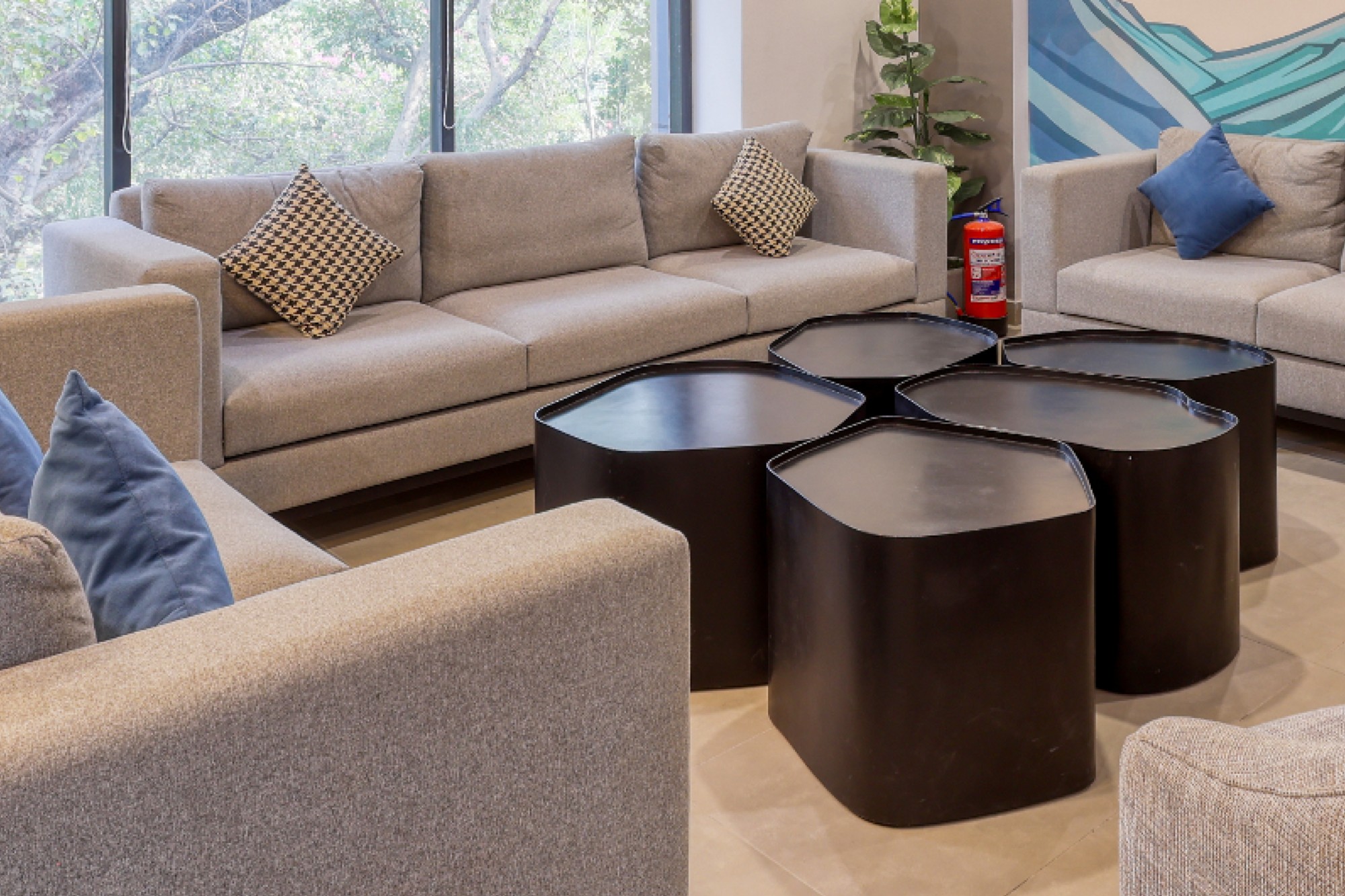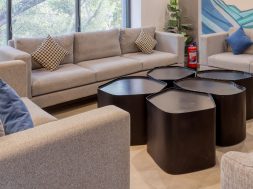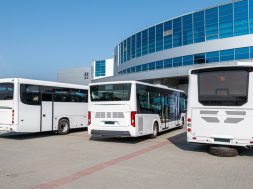Onward Workspaces ultimate designs for co-working Start-Ups

With the flexible workspace market expected to grow, these dynamic settings place a premium on adaptability and efficiency, changing office culture for the future.
Co-working space design is perilous in the fast-paced startup ecosystem, where invention and productivity are paramount. These surroundings promote community development and act as incubators for new ideas. Co-working spaces also represent flexibility, cooperation, and innovation, laying the groundwork for the future of modern workplaces. Citing the popularity of modern workspaces, Avendus, a private equity firm, highlighted the industry’s enormous potential, forecasting India’s flexible workspace market to reach 126 million square feet by 2028, according to a recent analysis.
Suvrat Jain, Founder & CEO at Onward Workspaces, believes that building co-working spaces necessitates a thorough awareness of modern workplace requirements as well as a strong emphasis on layout to create an engaging setting that is consistent with company values. As co-working spaces reshape work culture, Fortune 500 companies and fledgling startups are flocking to these open collaborative spaces for their ability to boost productivity and engagement.
Community building and networking are essential components of every successful coworking space. Co-working spaces may greatly increase productivity and innovation by encouraging a sense of belonging and collaboration. As businesses adopt co-working spaces where creativity thrives, relationships thrive, and productivity is paramount, designers are actively improving these environments to unlock employee potential and enhance productivity. This entails finding the ideal balance between establishing conducive environments and providing visually pleasing surroundings.
Key strategies for building a productive ecosystem:
Networking events and workshops: Regularly scheduled gatherings can help members network, share information, and collaborate on initiatives.
Mentorship programs: Pairing experienced entrepreneurs with startup founders can boost growth and innovation.
Shared resources: Giving people access to shared tools and resources can lower overhead expenses and boost efficiency.
As organisations prioritise adaptability and efficiency, co-working spaces have changed growth strategies by providing flexibility and cost-effectiveness outside of traditional office settings. These environments, which are used by Fortune 500 enterprises, prominent global corporations, and fledgling startups, are prized for their physical amenities and for their potential to boost productivity through innovative design tactics.
In an age where visual appeal trumps productivity, co-working spaces have prioritised incorporating a symphony of smart design that harnesses the ideal ambient to fire the spirit of creativity and productivity. A well-planned space layout is incomplete without plenty of natural light, plants, and a soothing colour palette, all of which have been linked to improved mood and increased productivity.
Comfort is essential in coworking spaces, whether in a private suite, cabin office, or meeting room. These rooms improve flexibility and function by focusing on ergonomic furniture, flexible sit-stand workstations, and comfortable chairs, laying the groundwork for productivity. Furthermore, intentional acoustic designs reduce distractions, creating a favourable work atmosphere that promotes concentration and efficiency.
Coworking spaces are regarded as active talent hotspots, bringing together experts from many disciplines for engaging interactions. These spaces promote cooperation by providing well-equipped conference rooms and designated zones for teamwork, resulting in an ideal setting for community building. Furthermore, by arranging networking events, coworking spaces foster a strong sense of belonging among members and direct them towards increased productivity and professional advancement, which is what most startup and MNC firms strive for.
Co-working spaces have experienced a tremendous seismic shift, a pandemic in how we perceive modern work situations. With a focus on increasing productivity, these spaces are pioneering the development of accommodating workspace designs using tactics such as distraction control, community participation, developing successful routines, and using technology. These spaces promote cooperation by providing well-equipped conference rooms and designated zones for teamwork, resulting in an ideal setting for community building.
Moving forward, the co-working sector expects to grow rapidly, driven by the development of innovative facilities and a thriving network of professionals eager to collaborate. According to Avendus Capital, the flex workspace segment in the commercial office market is on a rapid rise and is expected to increase from 7 percent in 2023 to about 12 percent by 2028, indicating a strong development path in the future.
For more information, visit: https://www.onwardworkspaces.com/
Cookie Consent
We use cookies to personalize your experience. By continuing to visit this website you agree to our Terms & Conditions, Privacy Policy and Cookie Policy.









